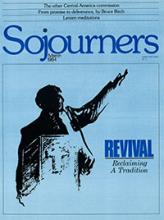Concerned about the Reagan administration's policy toward Central America, a group of scholars founded PACCA (Policy Alternatives for the Caribbean and Central America) in the spring of 1982. They recently released a report titled Changing Course: Blueprint for Peace in Central America and the Caribbean. The epilogue of Changing Course, a response to the report released by the National Bipartisan Commission on Central America, is reprinted below.
—The Editors
You come here speaking of Latin America, but this is not important. Nothing important can come from the South. History has never been produced in the South. The axis of history starts in Moscow, goes to Bonn, crosses over to Washington, and then goes to Tokyo. What happens in the South is of no importance.
—Henry Kissinger to Gabriel Valdes, Foreign Minister of Chile, June 1969
On January 11, 1984, the National Bipartisan Commission on Central America released its report. The 132-page document, prepared by a 12-member commission chaired by former Secretary of State Henry Kissinger, charts a policy course to deal with the unrest and instability of the region.
The Kissinger Report acknowledges that the violent upheavals in Central America are rooted in poverty and repression: "Discontents are real, and for much of the population conditions of life are miserable; just as Nicaragua was ripe for revolution, so the conditions that invite revolution are present elsewhere in the region as well." But the report charges—with an argument built on assertion rather than evidence—that the Soviet Union is the manipulator of indigenous revolution in the region. "The Soviet-Cuban threat is real," the report emphasizes, because "the conditions which invite revolution ... have been exploited by hostile forces."
Read the Full Article

